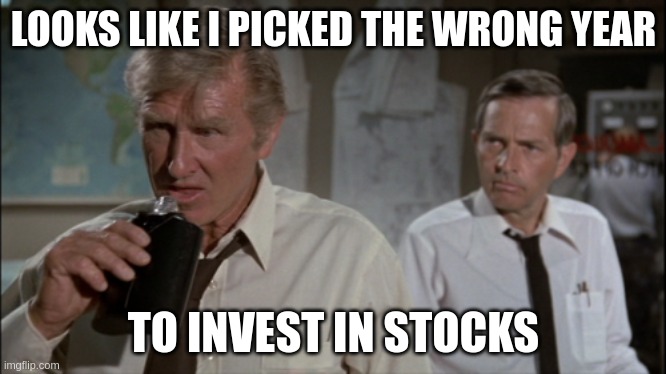2022 was my first full year of giving serious effort to investing in equities. I enjoyed reading up on interesting companies and markets to see how they operate and which ones have a good shot at building or widening a competitive moat.
Here’s what I learned this past year.
Don’t Reach!
There were a few instances (DJCO, GRBK, SMLR) where I read a few writeups on VIC, read through a few of the 10-K’s and IR presentations, and felt convinced (too quickly) that it’s a solid investment and started a small position. Weeks later, regardless of where it moved, I’d sell it for something I thought was more interesting. Not sure if there’s a term for this (nibbling?), but it’s clear I wasn’t fully ready to be an owner of these companies. Investing should be treated like full ownership, and you really shouldn’t buy a company you wouldn’t feel comfortable owning for at least 5-10 years.
I feel like you have to bring some insight to the table, otherwise what do you know better than the market? How will you know whether to suffer through a 50% drawdown if you don’t bring anything to the party? I cut the above plays as I soon realized that
- I had no special insight
- I had no intrinsic interest in the company itself
- If it were to have a drawdown, I’d be terrified. (unfortunately we’ve seen plenty of drawdowns in 2022, but I definitely got more excited when $PLTR goes down than with the others I nibbled at).
Opportunity Cost is Complex
Opportunity cost is a simple concept, but going beyond textbooks and feeling it is something else. Knowing I have a finite amount of cash to deploy, how to weigh all these options against each other? It’s obvious - I needed a way to evaluate each option objectively, and so I’ve crafted a process using pre-flight checks on valuation, capital allocation, and company competitiveness and pulling the trigger when I feel there’s a sufficient margin of safety. (One recent addition, Journalytic, has been a great tool to write out my thoughts and capture more of the emotional state of investing, I highly recommend!)
Know Which Game You’re Playing
While I’ve been motivated to get better at capital allocation, I also wanted to get better at studying specific industries and companies. Having been with several startups, I’ve learned that being a strong technologist isn’t enough. You have to know the industry you’re playing in and the players. All the shiny tech features in the world won’t save your company if you’re not adding value for your customers or have solid unit economics. So between market intelligence and enhancing my own financial acumen (I’m still a numbers guy at heart), I started to see how this investing hobby could turn into something more fulfilling.
And so far it’s been a fun game! Now I’m actively exploring ways to leverage my techincal experience to help myself/others in their process too, so if you have any requests reach out!
